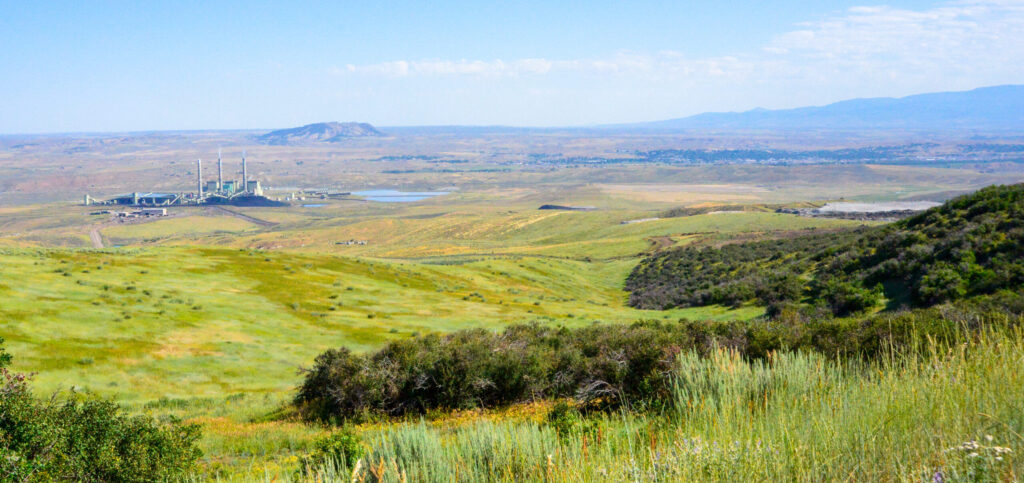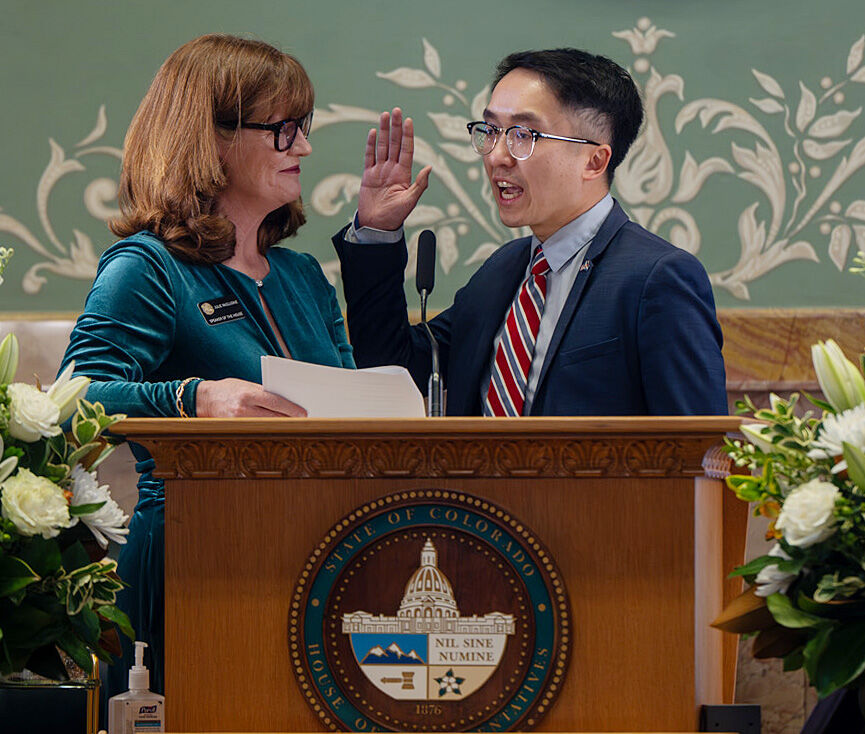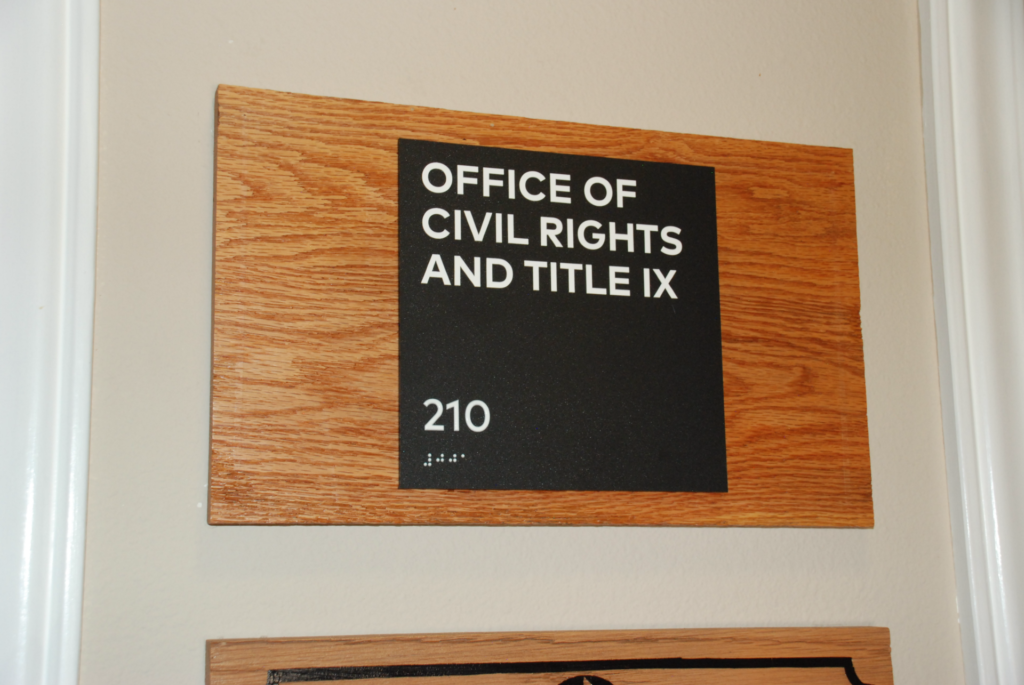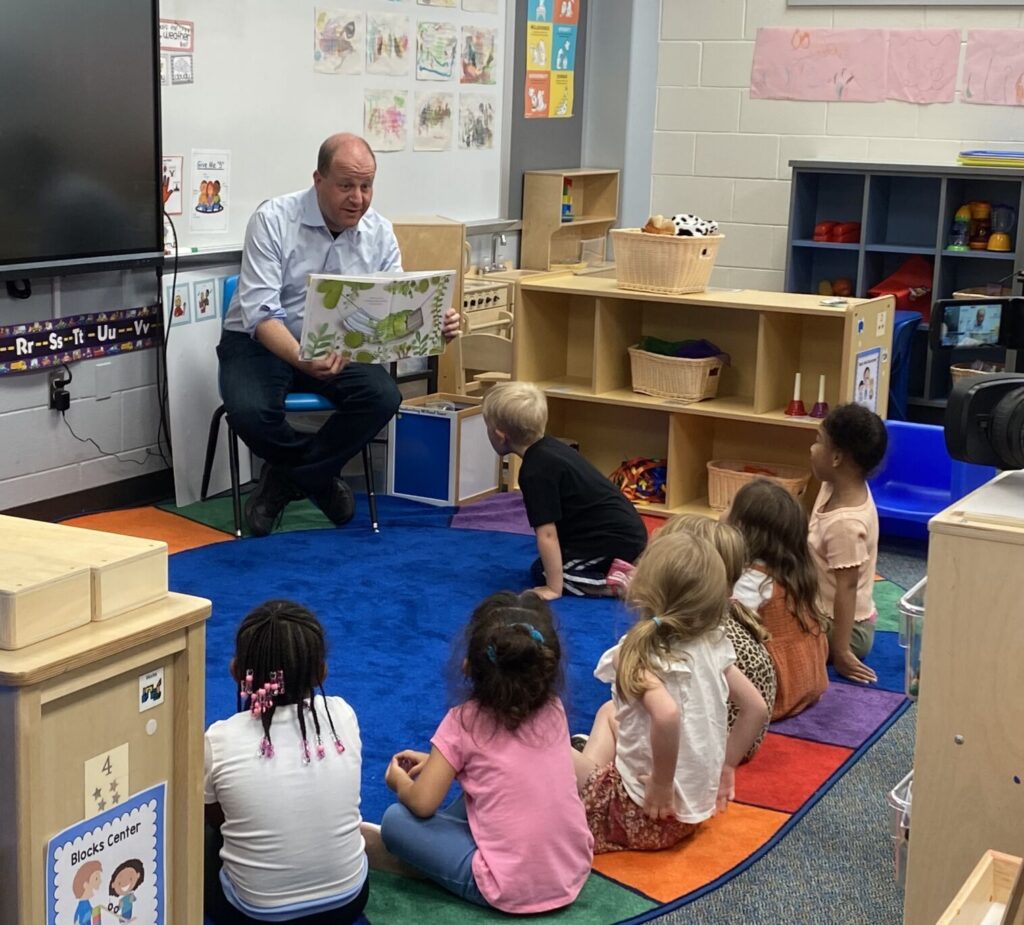Colorado’s universal Pre-K program nears 60% enrollment — below expectations

Colorado’s inaugural universal Pre-K program has enrolled nearly 60% of the state’s 4-year-olds, just short of what early education experts say is necessary to bestow universal status.
“Seventy percent is kind of a minimum we use,” said Steven Barnett, director of the National Institute for Early Education Research. “If you’re not 70% you can’t really say that you’re universal yet.”
Headquartered in New Brunswick, New Jersey, the institute conducts academic research to better inform policy that supports quality early education for all young children.
At the start of this academic year, 59% of the state’s 4-year-olds had enrolled in Pre-K, according to the newly created Colorado Department of Early Childhood, which oversees the program.
Last year, roughly 44% of 4-year-olds were enrolled in preschool. The more than 9,000 additional preschoolers this year represents a 15% increase over last academic year.
“We’re thrilled by the uptake of this year, and look forward to providing free universal preschool for even more families in Year 2,” Ian McKenzie, an early childhood spokesperson, said in an email to The Denver Gazette.
Free universal preschool is a cornerstone of Gov. Jared Polis’ legislative agenda.
The nearly 60% of eligible 4-year-olds enrolled in the first year demonstrates the need and exceeded expectations, Katie Jones, a Polis spokesperson, said in an email.
“Based on data from other states, we expect to see this enrollment increase by around 15% over the first five years,” Jones said.
Projected enrollment was estimated at between 40% and 60%.
The 70% threshold to be considered a universal program comes with an important caveat: the number of 4-year-olds enrolled in Head Start programs. This is because Head Start programs work toward the same Pre-K goal of getting kids acclimated to learning in a classroom environment.
Head Start and Early Head Start programs support children’s growth from birth to age 5 with services that center around early learning and development, health and family well-being to foster stronger outcomes.
It’s unclear how many 4-year-olds in Colorado are enrolled in Head Start programs.
In the 2018-2019 academic year, just 13% of the state’s 3- and 4-year-olds were enrolled in Head Start, according to a 2021 Colorado legislative report.
Universal Pre-K is any state-funded preschool program for which age is the only eligibility criterion.
Passed by Colorado lawmakers last year, the universal Pre-K program provides up to 15 hours of free preschool for all Colorado children each week the year before they enter kindergarten. Those with additional qualifying factors such as a child in special education or dual language or unhoused qualify for an additional 15 hours.
In 2020, Colorado voters approved Proposition EE, a nicotine and tobacco tax, to fund universal Pre-K.
The long-awaited launch of the program – which comes as Colorado struggles with an acute child care shortage – was expected to save Colorado families more than $160 million, according to the state.
The state’s free, universal preschool program, though, has been criticized as misleading.
“We need to fully fund this or call it by another name,” Denver Public Schools Board of Education Vice President Auon’tai M. Anderson has said. “It’s part-time preschool.”
Denver Public Schools is the largest Pre-K provider in the county, serving about 70% of students. Pre-K participation in Denver County mirrors the state at 59%.
With roughly 7,500 4-year-olds, Denver County, however, does not have the largest concentration in the state. That distinction belongs to El Paso County, which has nearly 9,000 4-year-olds, 46% of whom are enrolled in Pre-K, state data shows.
As of Aug. 31, Colorado had nearly 45,500 preschool applications statewide. Of those, about 80% were enrolled, state data show. Only three counties – Custer, Jackson and Las Animas – enrolled all of its applicants.
The number of applications hovers below the state capacity, which is about 56,800 available Pre-K seats for Colorado’s roughly 63,000 4-year-olds.
“Any new program will have bumps in the road,” state Senator Janet Buckner, D-Aurora, said in an email to The Gazette. “Before we had a CDEC, too many parents and families were leaving services on the table.”
Buckner is one of the co-sponsors of the bill that create the universal Pre-K program and the Department of Early Childhood.
Several factors could explain the application and enrollment gap. Among them is missing documentation, such as immunizations or health records, transportation arrangements or issues with before and after school daycare.
The program’s website also faced early glitches.
Early education experts have repeatedly described the rollout as an attempt to build a plane as the state attempts to fly it.
“I think it’s messy, but expected,” said Melissa Mares, director of Early Childhood Initiatives for the Colorado Children’s Campaign. “We’re trying to improve a system that has a lot of places that need more funds.”
Mares added, “I think one of the challenges is I don’t think we can know for sure until we have more complete data.”
Providers The Denver Gazette spoke to described a less-than enthusiastic start to the new program.
Lori Haubert, owner of The Lion and His Lambs in Arvada, spent about $1,000 to transition from infants and toddlers into a universal preschool program only to turn up empty handed.
Haubert said she had no matches.
“I’ll go back to doing infants and toddlers because I have bills to pay,” Haubert said.
Haubert added, “It’s going to take a long time for me to recoup what I’ve lost.”
Ann McBride, director of operations for Iliff Preschool in southwest Denver, said the school filled 25 of its 30 Pre-K slots.
“We didn’t have the demand that we thought we would,” McBride said.
But with new students still trickling in, McBride said she believes they still could cap out.
Despite these complaints and falling short of the 70% minimum in other state programs, the increased preschool enrollment in Colorado is still quite a feat, said Barnett with the National Institute for Early Education Research.
“At 59%, Colorado is definitely going to be in the top 10 of states for enrollment of 4-year-olds,” Barnett said.















